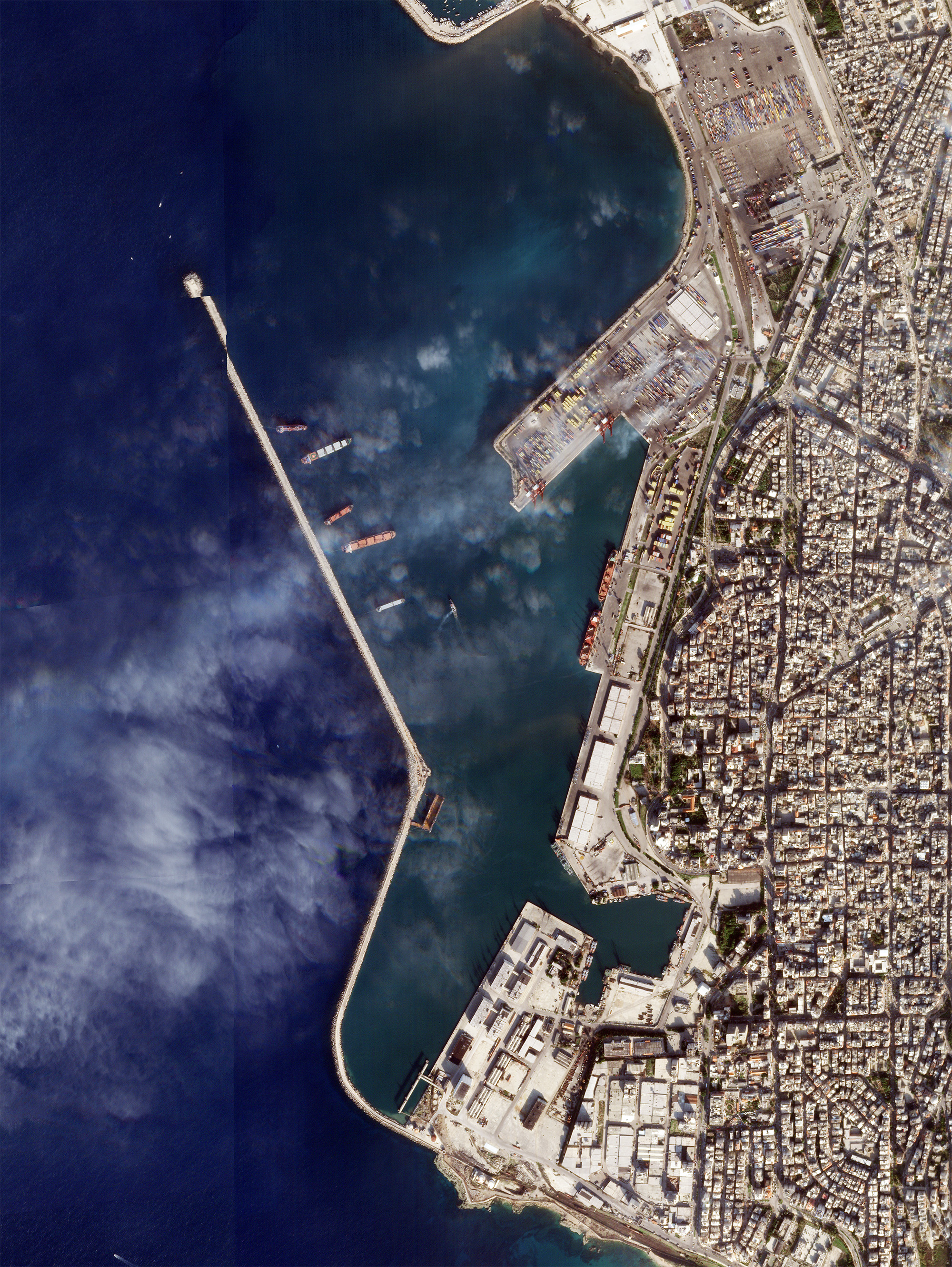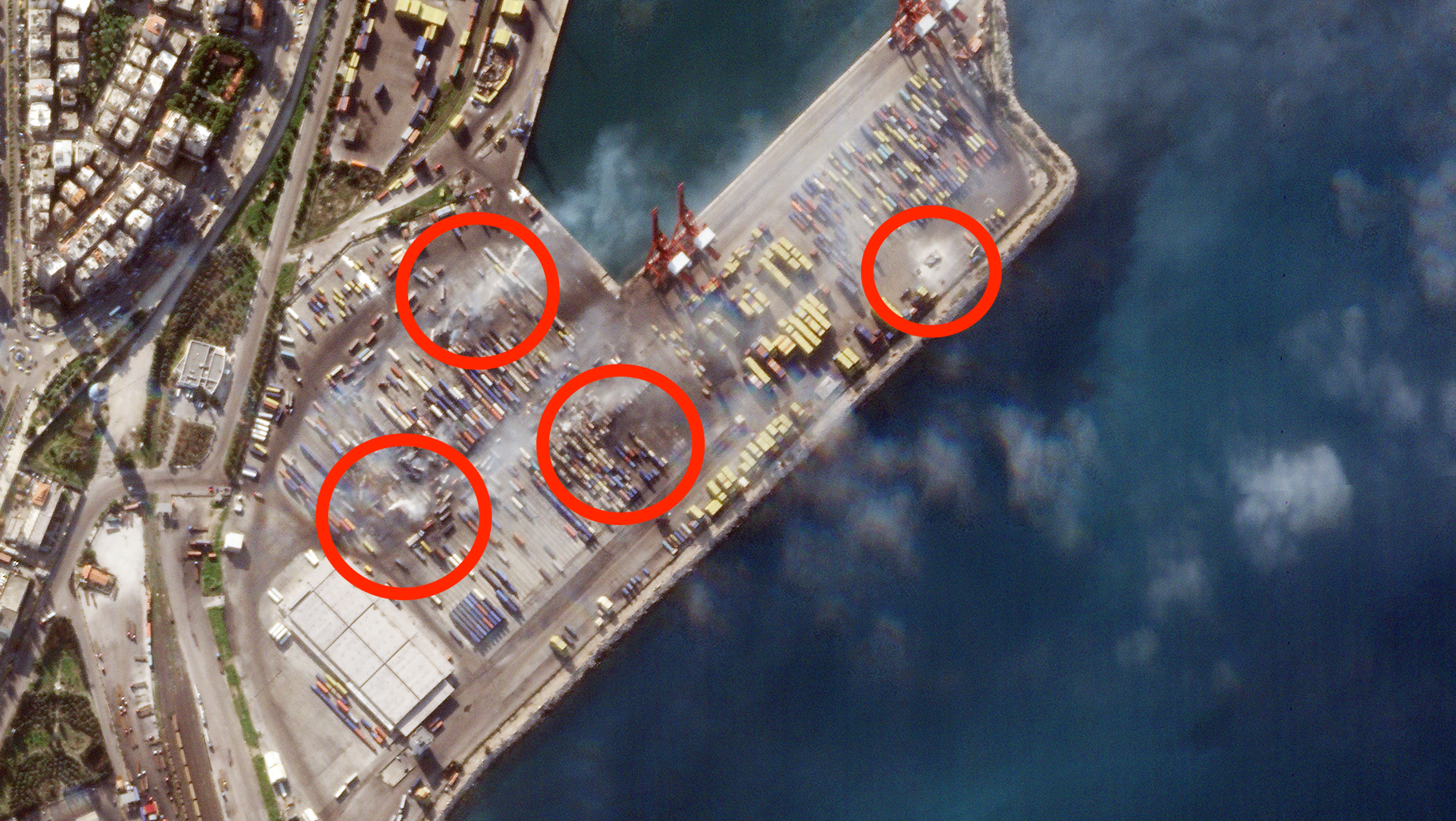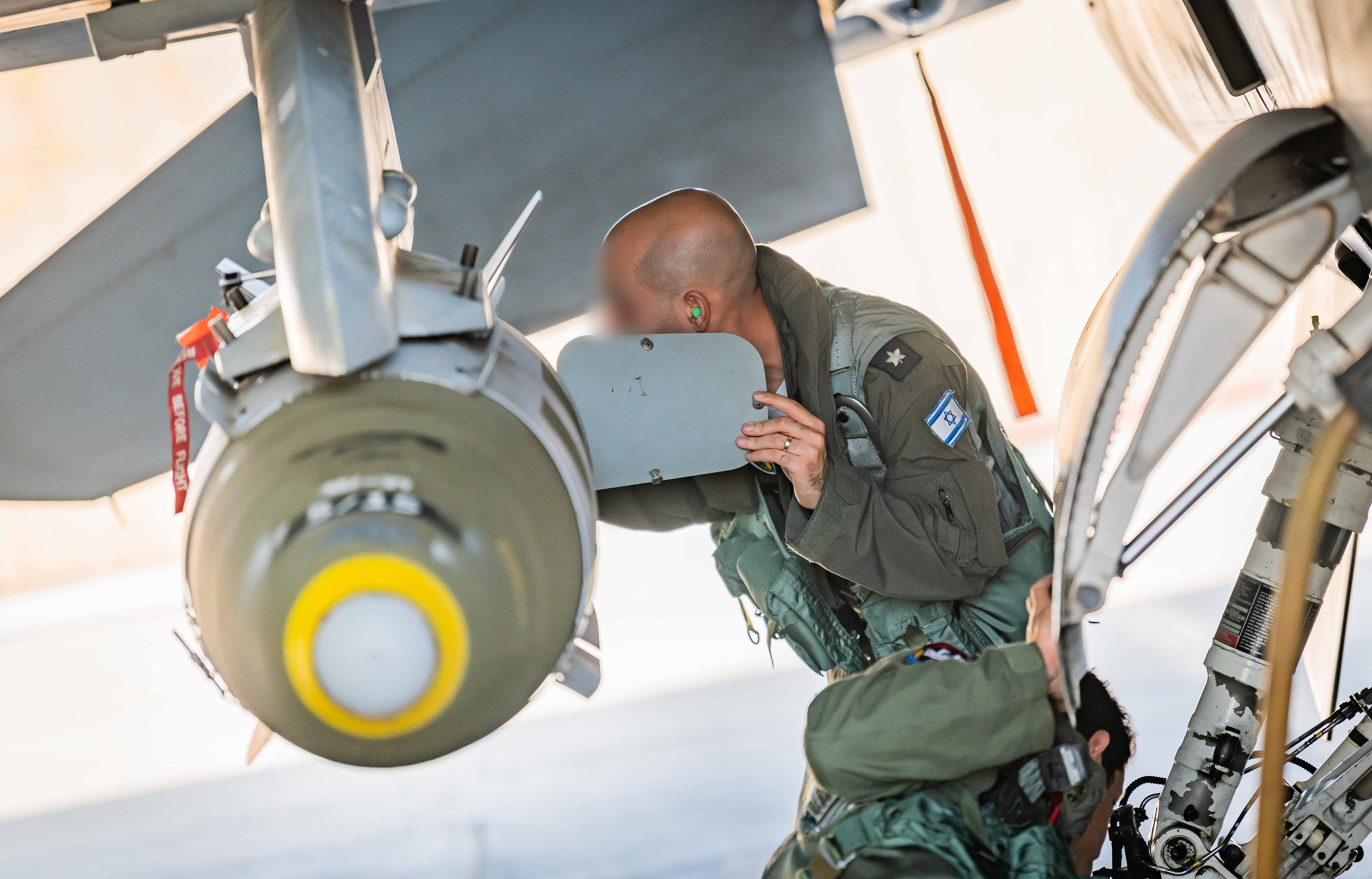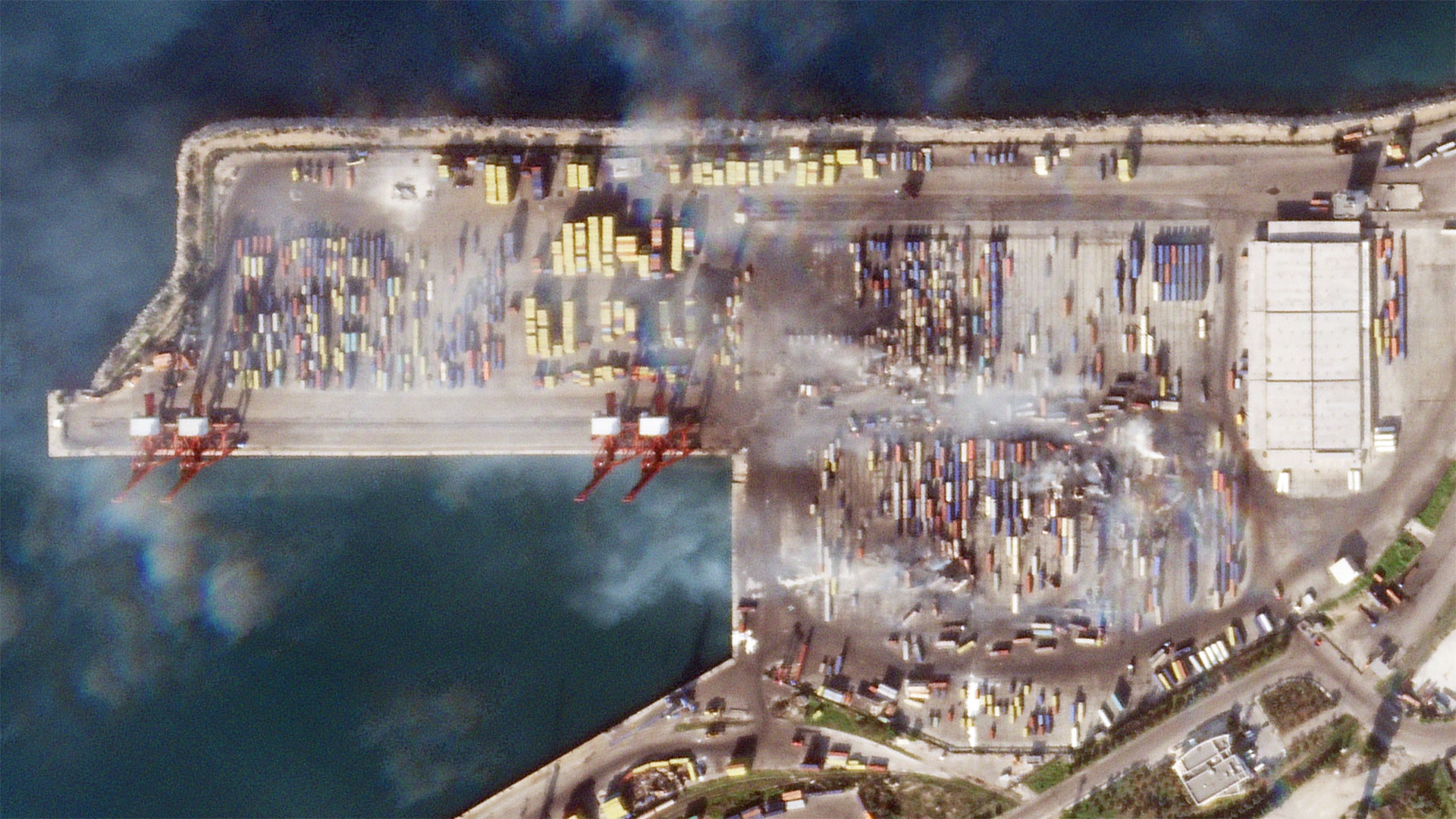Satellite imagery The War Zone obtained from Planet Labs shows the aftermath of yesterday’s Israeli airstrike on the Syrian port of Latakia, which reportedly targeted a shipment of “arms and munitions.” The air raid, apparently launched by Israeli Air Force aircraft over the Mediterranean, resulted in a huge blaze at the port facility, which took firefighters many hours to bring under control. You can read our original reporting on the incident here.

The satellite image shows damage to multiple shipping containers, seemingly as the result of four separate weapons impacts in different parts of the facility. As of today, palls of smoke were still visible overhead the port, although the overall damage appeared to be generally restricted to the container terminal itself, with no apparent harm done to the area immediately surrounding the port. Surprisingly little is visible in terms of cratering, too. The attack looks like it was astonishingly precise, striking individual or small groups of containers only.

Meanwhile, unconfirmed reports that have emerged since yesterday’s attack claim that two members of the Syrian military were killed in the raid.
As for the origin of the reported arms shipment that the Israeli Air Force targeted, there has been no confirmation that this was provided by Iran. In the past, however, Tehran has delivered to Syria weapons ultimately intended for the Lebanese Hezbollah group as well as other Iranian-backed forces in Syria and Lebanon.
“If the strikes in Latakia were, indeed, carried out by Israel, they were presumably designed mostly to prevent the buildup of [the] Iranian’s capabilities in Syria,” said Chuck Freilich, a former deputy Israeli national security adviser, quoted in a report from the Wall Street Journal. “But there is a secondary benefit of reminding the Iranians that Israel can strike at any time,” he added.
Now, however, an unconfirmed report suggests that the attack on the port may be connected to the arrival of the Iranian-flagged container vessel Shiba, owned by Islamic Republic of Iran Shipping Lines, which was noted transiting the Bosphorus en route from Latakia to Chornomorsk in Ukraine today. Allegedly, the vessel unloaded a consignment of containers at Latakia, although this has so far not been independently verified.
According to publicly available ship-tracking data, the Shiba had departed Latakia on December 25, two days before the airstrike. While the presence of vessels owned by Islamic Republic of Iran Shipping Lines at Latakia is by no means unusual, it’s noteworthy that the carrier has been sanctioned by the United States for transporting military cargoes on behalf of Tehran.
As for the Russian response to the Israeli raid, or lack of it, Deputy Admiral Oleg Zhuravlyov, the deputy head of the Center for Reconciliation of the Hostile Parties in Syria, a self-styled “peace monitoring center and information office,” has provided an official, if questionable explanation as to why Russian-operated air defense systems did not react. Zhuravlyov said that the Israeli attack coincided with the arrival of a Russian transport aircraft that landed near the city, presumably at the main Russian airbase in Syria at Khmeimim, less than 10 miles away.
However, it is known that Russia is notified by Israel in advance of Syrian airstrikes and there exists an agreement under which its air defenses do not engage the Israeli Air Force. It seems that Zhuravlyov’s explanation was mainly directed toward the Syrian public, which has been notably vocal in its criticism of the Russian response to the airstrikes, and Moscow’s air defense policy in the country in general.
Zhuravlyov also gave more details of the attack. According to the Russian official, Israeli Air Force F-16 fighters jets launched their weapons from over the Mediterranean Sea. Zhuravlyov said that two missiles were launched, although the satellite imagery above seems to clearly show four separate impact points.

With Israel having struck the port of Latakia twice this month, with the first such raid on December 7, the country continues to tackle the issue of suspected Iranian arms shipments head-on. It also is a reminder that Israel is ready and willing to take direct actions to stop Iran from establishing a larger military foothold in Syria and to degrade its ability to continue to bolster Hezbollah’s arms stockpiles in Lebanon.
Contact the author: thomas@thedrive.com
